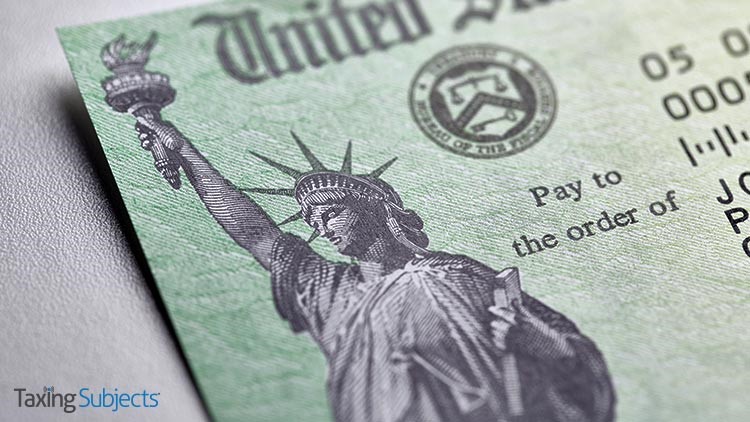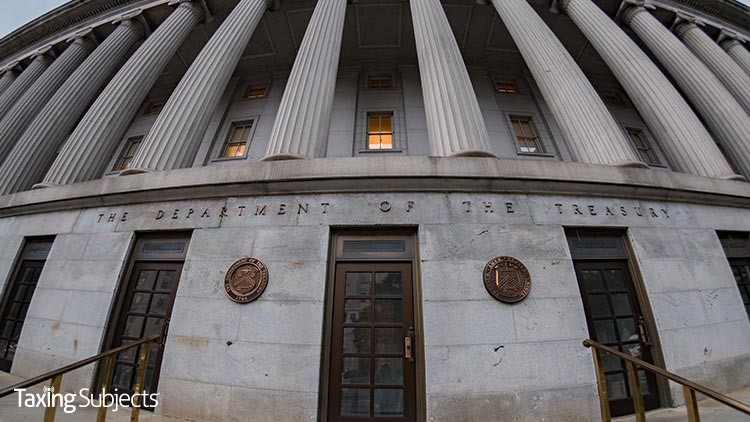by | Apr 3, 2021 | Tax Tips and News
Major tax legislation usually causes a period of confusion as taxpayers and tax professionals wait for official guidance on complex provisions. The American Rescue Plan Act of 2021 is no different.
The Internal Revenue Service this week announced they will automatically issue refunds for some unemployment compensation recipients who filed their tax year 2020 return before the bill was signed into law on March 11, 2021. While that probably sounds like good news for the do-it-yourself crowd, tax professionals may still want to consider filing amended returns for their clients to ensure they receive the correct amount from the IRS.
What caused the problem for unemployment compensation recipients who filed early?
The trouble stems from the law retroactively allowing taxpayers whose adjusted gross income is less than $150,000 to exclude part of their tax year 2020 unemployment compensation. The amount that qualifying taxpayers can now exclude is based on their filing status:
- $10,200 for single filers
- $20,400 for married couples filing jointly
Early birds who filed returns before the American Rescue Plan was passed obviously would not have known about the exclusion, meaning they may have paid more tax than necessary. Rather than requiring all affected taxpayers to file an amended return, the IRS says it will instead automatically make the necessary changes to those returns.
How is the IRS going to fix the affected returns?
“For those who have already filed, the IRS will do these recalculations in two phases, starting with those taxpayers eligible for the up to $10,200 exclusion,” the agency explains. “The IRS will then adjust returns for those married filing jointly taxpayers who are eligible for the up to $20,400 exclusion and others with more complex returns.”
Taxpayers who are eligible for a refund following the automatic recalculation could be issued a payment as early as May 2021, but the IRS says they are still trying to determine the full scope of the problem since a staggering 23 million taxpayers filed new unemployment claims last year.
Why would tax professionals want to file an amended return anyway?
Filing amended returns for clients affected by the unemployment compensation exclusion issue isn’t an easy decision: It’s a time-consuming process that will involve reaching out to clients, then recalculating and reviewing those returns during the busiest part of filing season.
For some clients, it may not even make sense to incur the extra cost for what could be a minimal gain. But as the IRS notes, this recalculation can also mean larger amounts for tax credits that are already claimed on the return—like the Earned Income Tax Credit—or eligibility for others.
“You have to ask yourself if it’s in your client’s best interest to see if the IRS issues the correct amount or whether you, as their trusted tax advisor, are in a better position to ensure they get what they qualify for,” says Drake Software Chief Revenue Officer John Sapp. “If you’re in one of the states that are automatically following the IRS’s lead, you may have an even greater incentive to revisit those returns.”
Source: IR-2021-71
– Story provided by TaxingSubjects.com
by | Apr 1, 2021 | Tax Tips and News
Taxpayers are getting more time to meet some tax deadlines that would normally fall on April 15, such as making IRA contributions and filling certain claims for a refund.
The deadline shift is outlined in Notice 2021-21, which pushes those deadlines to May 17, 2021.
The Internal Revenue Service had announced previously that the federal income tax filing due date for individuals had been extended from April 15 to May 17.
Here’s a look at the various deadlines included in this latest push-back.
Get more time to make contributions to IRAs, health savings accounts
In extending the deadline to file Form 1040-series returns to May 17, the IRS is automatically postponing the deadline to make 2020 contributions to an individual retirement arrangement. This includes IRAs, Roth IRAs, health savings accounts (HSAs), Archer Medical Savings Accounts (Archer HSAs), and Coverdell education savings accounts (Coverdell ESAs).
The time for reporting and payment of the 10% additional tax on amounts includible in gross income from 2020 distributions from IRAs or workplace-based retirement plans has also been delayed to May 17.
Notice 2021-21 also pushes back the due date for Form 5498-series returns related to these accounts to June 30, 2021.
Deadline to seek 2017 refunds extended
For tax year 2017 federal income tax returns, normally the deadline to claim a refund would be April 15, 2021. The law provides a three-year window of opportunity to claim a refund. This deadline has been moved to the May 17 date for filing for 2017 refunds. Note, however, that while the deadline for filing is pushed back, failure to file by that the new date still means the refunds become the property of the U.S. Treasury.
In order to successfully claim a 2017 refund, taxpayers need to properly address, mail and ensure the tax return is postmarked by the May 17 deadline.
May 17 is also the new deadline for foreign trusts and estates with federal tax filing or other payment obligations who file Form 1040-NR.
2021 Annual Filing Season Program
Those tax professionals who are interested in taking part in the Annual Filing Season Program (AFSP) for calendar-year 2021 now have until May 17 to file their application with the Internal Revenue Service. The normal due date is April 15.
Notice 2021-21 has details on the extension, and is posted on IRS.gov. Visit the Tax Pros page on the website for more information about the Annual Filing Season Program.
Estimated tax payments not postponed
Notice 2021-21 does not change the April 15 deadline for estimated tax payments; those are still due on April 15.
Taxes must be paid as taxpayers earn or receive income during the year, either through withholding or estimated tax payments.
In general, estimated tax payments are made quarterly to the IRS by taxpayers whose income isn’t subject to income tax withholding. This can include self-employment income, interest, dividends, alimony or rental income.
Most taxpayers have their taxes automatically withheld from their paychecks and submitted to the IRS by their employers.
To find updates on tax relief as a result of the COVID-19 pandemic, visit IRS.gov.
Sources: IRS extends additional tax deadlines for individuals to May 17
– Story provided by TaxingSubjects.com
by | Apr 1, 2021 | Tax Tips and News
Students and their higher-education institutions are getting a clearer picture of how to report pandemic-related emergency financial aid grants. Or not.
The big news is that the IRS considers aid to students due to the COVID-19 pandemic to be non-taxable.
The Internal Revenue Service used a list of frequently asked questions to pass along the clarification which is aimed both at students and higher-education institutions.
What are the implications for students?
For students, the math is simple. Emergency financial aid grants made by a federal agency, state, Indian tribe, higher education institution or scholarship-granting organization (including a tribal organization) to a student because of an event related to the COVID-19 pandemic are not included in the student’s gross income.
In addition, the IRS says students shouldn’t reduce the amount of qualified tuition and related expenses by the amount of an emergency financial aid grant.
Students who used any portion of the grants to pay for qualified tuition and related expenses on or before Dec. 31, 2020, may be able to claim a tuition and fees deduction, the American Opportunity Credit or the Lifetime Learning Credit on their 2020 tax return.
Higher Education Emergency Grants Frequently Asked Questions has more information online.
The tuition and fees deduction isn’t available for tax years beginning after Dec. 31, 2020. Publication 970, Tax Benefits for Education, has more information on the deduction.
What does this mean for higher education institutions?
When students don’t include emergency financial aid grants in their gross income, the math gets simpler for colleges and universities as well.
In this case, the institutions won’t have to file or furnish Forms 1099-MISC that would otherwise be used to report grants made through the Coronavirus Aid, Relief, and Economic Security Act (CARES Act) or the COVID-related Tax Relief Act (COVID Relief Act). They also don’t need to report the grants in Box 5 of Form 1098-T.
That said, the IRS reminds that any amounts that qualify for the tuition and fees deduction or either one of the education credits are considered qualified tuition and related expenses.
That means they’ll trigger the reporting requirements of Internal Revenue Code section 6050S. Therefore, higher education institutions are required to include qualified tuition and related expenses paid through emergency financial aid grants awarded to students in Box 1 of Form 1098-T.
Sources: Emergency aid granted to students due to COVID are not taxable.
– Story provided by TaxingSubjects.com



